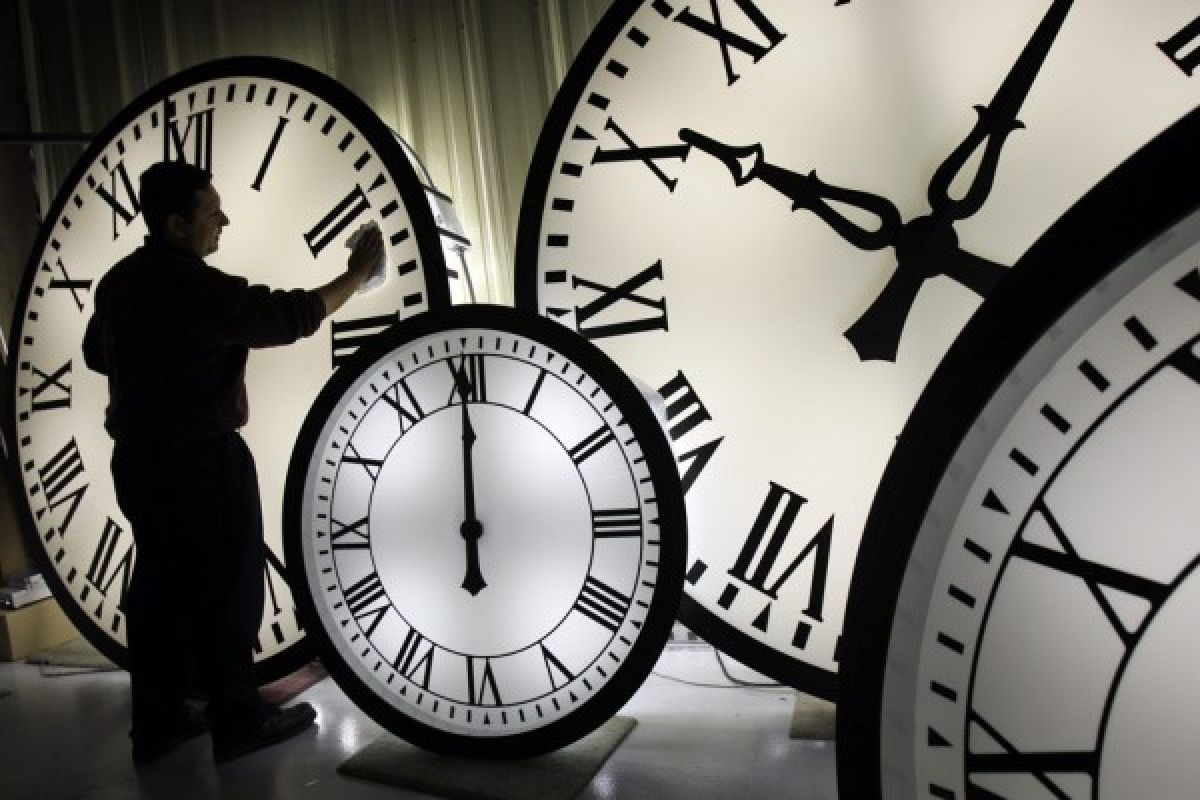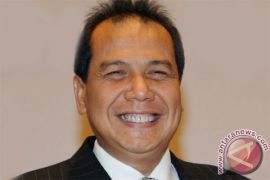"Do we want to go back to Japan`s era?"Jakarta (ANTARA News) - In October 1928, a group of young men from several islands together made a pledge they would be united under one motherland, one nation, and one language: Indonesia.
Eighty-four years later, Indonesia is considering merging its three time zones - GMT+7, GMT+8, and GMT+9 - into one single zone: GMT+8. The government is planning to use the new single time zone starting October 28, 2012.
The single time zone idea was brought up at the Tampaksiring meeting in Bali in May 2012 by the National Economic Committee (KEN), which suggested that a single time zone would help improve the country`s economic competitiveness and bureaucratic efficiency.
The Indonesian Committee for the Acceleration of Economic Development (KP3EI) hailed KEN`s recommendation and suggested the merging of the three time zones on October 28 this year.
Speaking at a seminar on May 25, KP3EI spokesman Edib Muslim said a single time zone would be good for the economy, the education sector, and job opportunities.
"The time zone will improve our global competitiveness. The single time zone must begin on October 28, 2012, or otherwise Indonesia will lose ground," he added.
KP3EI has chosen October 28 because the date is historical for the Indonesian people, coinciding with the National Youth Pledge Day. Besides, October 28 will fall on Sunday this year, so it will be easier for the people to adjust to the new time zone.
The merging of Indonesia`s western, central and eastern standard times is expected to help increase the country`s gross domestic product (GDP), because there will be around 190 million people working at the same time.
Indonesia`s Stock Exchange (BEI), which is situated in Jakarta, is always an hour behind the bourses in Hong Kong, Shanghai (China) and Singapore, because Jakarta follows the Western Indonesian Time (WIB) or GMT+7.
Earlier, there was a suggestion that a single time zone be made operational starting August 17, 2012. However, Bank Indonesia advised that the public and business communities be familiarised with the single time zone plan for at least 90 days before it was effectively applied.
Trade Minister Gita Wirjawan has also hailed the single time zone plan.
"It will be beneficial. Because, right now, the people in eastern Indonesia have to wait for two hours if they want to do trade or business transactions with their partners in western Indonesia. In two hours, we could do so many things," the minister said.
China uses a single time zone. Brazil also plans to merge its time zones to improve its business efficiency and effectiveness, as well as for security reasons.
"We are optimistic that if we apply GMT+8 throughout Indonesia, it will encourage the national economic acceleration programme and improve the people`s welfare," Gita said.
The GMT+8 time zone is also used by China, Korea, Singapore, and Malaysia.
However, not all agree with the single time zone plan. Former vice president M Jusuf Kalla, for instance, slammed the plan recently, saying that having a single time zone would be a mistake that could affect 200 million people in the country.
"It could create chaos. There is no objective reason to merge the time zones in Indonesia," Kalla said.
The conversion to a single zone, of GMT+8 or the Central Indonesian Standard Time, would force the 193 million residents of western Indonesia and six million residents of eastern Indonesia to change their life patterns drastically, he noted.
For example, Kalla added, the residents of western Indonesia would be compelled to begin their activities one hour earlier.
Kalla noted the time zone should be in line with nature.
"In tropical countries, the sunrise is at 6 am, noon at 12 am and the sunset is at 6 pm," he said.
Given Indonesia`s natural conditions, it would be very illogical if the country, which extends over a length of 5,000 km, moves to a single time zone, Kalla added.
"In the whole world, no country extending over a total length of 5,000 km has a single time zone, except China, because China`s Communist party made this decision in 1949 for political reasons," he explained.
"The United States has nine time zones, while Australia has three time zones," Kalla pointed out.
Indonesia had a single time zone in 1942, because the Japanese occupying forces wanted to send a unified tribute to the Japanese emperor at 12 am, he said.
"Do we want to go back to Japan`s era?" the former vice president added.
According to Kalla, a single time zone has no impact on a nation`s productivity, trading, or capital market. He said it would instead waste more energy, because around 200 million people would have to get up an hour earlier and use more electricity.
Meanwhile, Coordinating Minister for Economic Affairs Hatta Rajasa supported the single time zone plan, saying that it would positively affect the stock market, as well as the nation`s sociocultural aspects.
He, however, stated the government would wait for the public`s response before implementing the plan.
(T.F001/INE/KR-BSR/S012)
Reporter: by Fardah
Editor: Priyambodo RH
Copyright © ANTARA 2012












